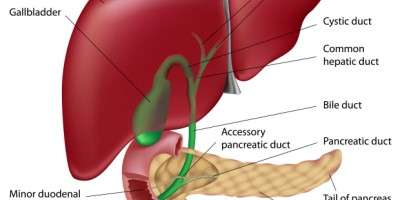HPB stands for Hepato-Pancreatic-Biliary treatment. It is a specific type of surgery to treat benign and cancer disease of the liver, biliary tree, and pancreas.
HPB medical procedure can be critical and requires high-quality training and the right amount of experience. Our bariatric surgeon in Mumbai has developed a well-designed HPB treatment procedure Program.
Our objective behind this well-designed treatment plan giving cutting-edge, top-notch care for our patients and their nearby people.
We are focused on providing extraordinary care in multidisciplinary situations. This implies proper coordination with our specialists and all other staff so that you can get a successful treatment without any complications.
In case you are suffering from primary cancers on your liver like hepatocellular carcinoma, cholangiocarcinoma, and sarcomas, the HPB surgery treatment can benefit you a lot.
How does our HPB surgery program go?
HPB surgery is a severe treatment that can give back your life. Eventually, it requires special care also. We at our clinic for bariatric surgery in Mumbai provide the treatment in the following ways-
- We approach each of our patients with a personalized treatment plan.
- We rely on evidence-based clinical medicine to provide you with proper recovery.
- As we all know, surgery is just one part of the HPB treatment procedure, and we offer all the required assistance.
- If you do not require surgical treatment, we can provide you with nonsurgical treatment based on your situation.
- After the surgery, we do not leave you without proper after treatment care.
Now, let us see the surgical procedure of HPB:
The surgical procedure includes the followings- Major or minor liver resection
- Surgery for a tumor in your liver
- Surgery in your pancreas due to cancer
- Resection and repair of bile duct
- In case you require a complex operation in your gallbladder
All of these surgical treatments are minimally invasive. Even we can use robotic techniques too.
In case you are suffering from HPB cancer.
HPB cancers are very complex diseases, and they require a combination of different treatments. The treatments may include Chemotherapy as well as surgery too.
In this case, our Bariatric surgeon will take care of your complications and provide you with all the necessary treatment for cure. The conditions when our doctor can recommend you HPB treatment are as follows-
- Chronic pancreatitis
- Pancreatic cystic neoplasms
- Liver tumours
- Cyst in your liver
- Pancreatic pseudocysts
Other than these, we will recommend the treatment if you have developed any of the following severe conditions-
- Liver cancer
- Pancras cancer
- Cancer in your gallbladder and bile duct
In case you are suffering from a problem related to HPB in your liver, we can perform the surgery to cut the damaged cancerous portion. You do not need to worry about it because your liver is an organ that can regrow again. Even you can live a healthy life by only twenty-five to thirty percent of normal liver generally.
On the other hand, you may develop cholangiocarcinoma or angiosarcoma in your gall bladder too. Your bile duct connects with your liver. Here we will recommend the treatment as per the location of your tumour. In case the tumour is close to your liver and bile duct, we may recommend different surgical techniques.
In case you have Pancreatic cancer, we may suggest different treatments for you. It can include a surgical procedure for the portion of your pancreatic cancer.
Our hepatobiliary surgeon will choose any one procedure, either open surgery or laparoscopic or robotic methods.
If you are suffering from any problems related to your liver, bile duct, or pancreas, you must not waste any time further. Visit us to avail the best quality treatment.

